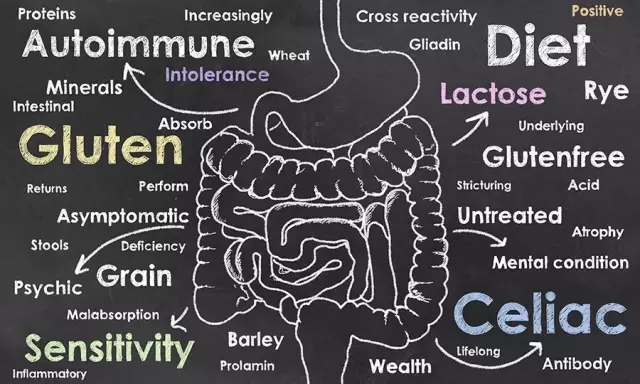Issues With Eating Gluten Without Celiac Disease
by TVance | December 27, 2017 6:47 am
The gluten-free train is roaring louder and louder by the day. Even superstars such as Victoria Beckham and Gwyneth Paltrow have reportedly gone gluten-free at some point in their careers. This trendy diet has quite a few proponents. In addition, with so much money to be made in the gluten-free market, you can expect more companies to jump on board.
 [1]
[1]
By 2018, Americans are expected to spend well over $6 billion on gluten-free products. That’s a lot of money, and one of the main reasons food companies are pushing this is the new, healthy option.
Many people believe going gluten-free will help them boost energy levels and slim down their waistline. There is, however, no evidence to back this up. Health experts are now coming forth to let the public know how dangerous eating a gluten-free diet can be.
According to them, this type of diet can cause a variety of health problems and should be avoided if you do not suffer from celiac disease. Eating a gluten-free diet when you do not have celiac disease can lead to severe malnutrition. Some studies show it can also lead to weight gain due to the high amounts of fat and calories found in some gluten-free foods. Fatigue and headaches are also consequences of consuming this type of diet without a medical reason.
What Is Celiac Disease?
Celiac disease is an autoimmune disorder in which your body basically tells gluten to attack the lining of your small intestine. This disease is diagnosed with blood tests and a biopsy.
Going gluten-free means you will have to completely eliminate breads such as rye, barley, and the ever so popular wheat, from your diet. This is because gluten naturally occurs in all of these foods. You would, therefore, have to replace these foods with gluten-free foods such as cornmeal, buckwheat flour, and rice.
Here’s The Bottom Line:
Giving up gluten isn’t necessarily a bad thing. It’s the risk of sacrificing nutritious whole grain foods that can be a problem. Just because a food is gluten-free doesn’t mean it’s a healthier option. It still contains fats, carbohydrates, and calories.
Gluten is no doubt responsible for making many people sick. In fact, there are close to 2 million Americans who suffer from celiac disease. However, most of them don’t know it. More often than not, this disease goes unnoticed due to a lack of symptoms. Short-term symptoms include diarrhea, fatigue, and abdominal pain. Over the long term, celiac disease can lead to intestinal damage.
Joseph Murray, MD, a celiac disease specialist at the Mayo Clinic, estimates 1.6 million people are eating a gluten-free diet without a celiac disease diagnosis. On the other hand, you have another 1.6 million people who actually have celiac disease but don’t know it, and are therefore on the wrong type of diet.
Even if you don’t have celiac disease, gluten can be a problem. Gluten sensitivity is very similar to celiac disease. The one big difference however are the symptoms. With gluten sensitivity, the symptoms are far less severe. According to the Center for Celiac Research & Treatment, around 18 million Americans have gluten sensitivity.
When you have celiac disease, even the smallest amount of bread could have long-term effects. Gluten sensitivity, on the other hand, will affect you differently. Depending on how severe your sensitivity is, you may be able to eat a slice of pizza and have no issues at all.
If you believe gluten is making you sick, schedule an appointment with your doctor. They will run a few tests to see if you have celiac disease or just a gluten sensitivity. If celiac disease is ruled out, the doctor may refer you to a registered dietitian to determine if you have a gluten sensitivity.
The dietitian will be able to help you come up with an eating plan that will work best for you. A registered dietitian can also help if you are diagnosed with celiac disease. If possible, meet with a dietitian who is an expert in celiac disease. This way they will already understand the unique requirements of a gluten-free diet.
They will be able to create a meal plan that is healthy and enjoyable. If you don’t like something, let the dietitian know. They will show you healthy options you can try instead.
The reality is we can all benefit in some way from a diet that is high in natural gluten-free foods. These include nuts, lean proteins, legumes, and fruits and vegetables. Research also suggests a diet low in gluten can help with skin conditions and joint diseases. Just know cutting gluten from your diet does not mean you will have good health.
- [Image]: https://alternativeresourcesdirectory.com/wp-content/uploads/2017/12/Issues-With-Eating-Gluten-Without-Celiac-Disease.jpg
Source URL: https://alternativeresourcesdirectory.com/news/issues-with-eating-gluten-without-celiac-disease